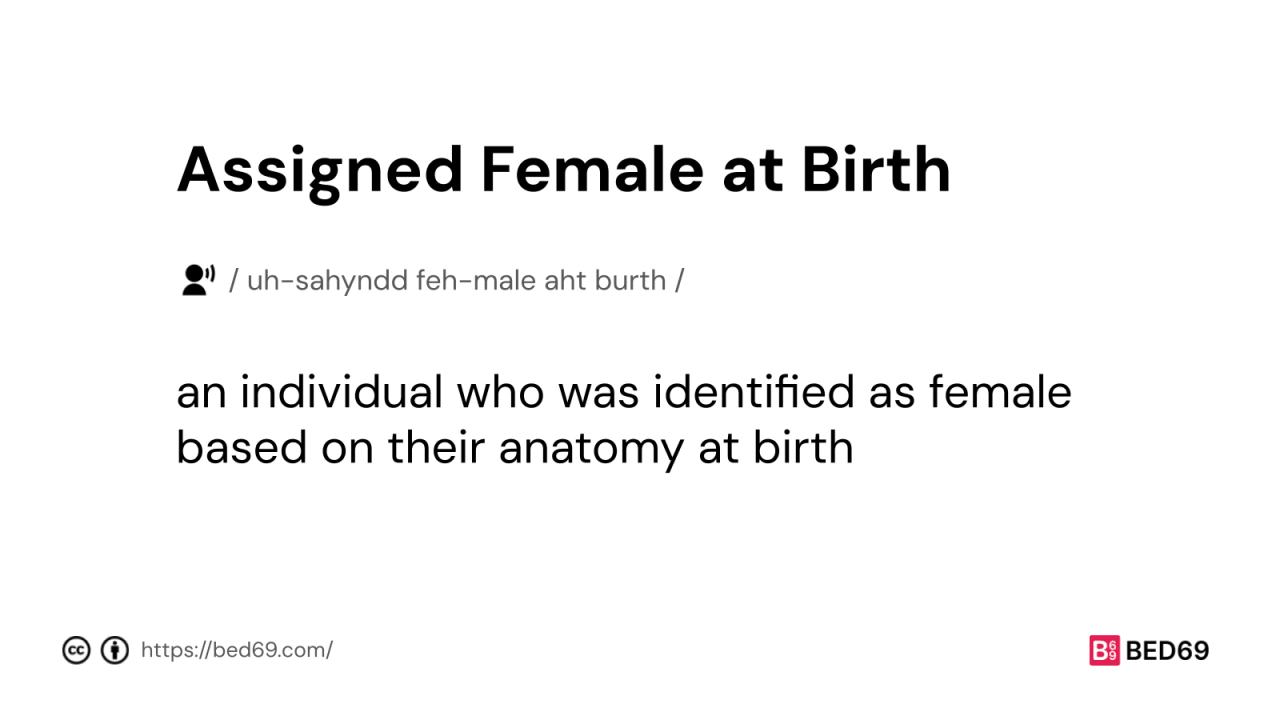What is Assigned Female at Birth?
Assigned Female at Birth (AFAB) is a term used to describe individuals who were labeled as female based on their anatomy at birth. It is a term used in the transgender community to emphasize that gender identity is separate from physical anatomy and is often a result of societal and cultural expectations.
Assigned Female at Birth pronunciation: / uh-sahyndd feh-male aht burth /

What challenges AFAB individuals face in society
Assigned Female at Birth (AFAB) individuals often face societal challenges due to gender norms and expectations. These individuals may encounter discrimination in various aspects of life, such as education and employment opportunities. Stereotypes regarding behavior, appearance, and capabilities can limit their freedom to express themselves authentically. Additionally, AFAB individuals may struggle with access to healthcare services that cater to their unique needs and identities.
Moreover, societal pressures to conform to binary gender roles can lead to feelings of alienation and isolation for AFAB individuals. They may also experience higher levels of gender-based violence and harassment.
Furthermore, the lack of awareness and acceptance of diverse gender identities in society can contribute to the marginalization and stigmatization of AFAB individuals. These challenges highlight the importance of creating inclusive and supportive environments for individuals of all gender identities.
How AFAB individuals navigate gender identity
Navigating gender identity for AFAB individuals involves exploring personal feelings and experiences to align their inner sense of self with their gender expression. This journey often includes self-reflection, seeking support from friends, family, or therapists, and sometimes undergoing medical or social transitions to better align with their gender identity.
AFAB individuals may experiment with clothing, hairstyles, or pronouns to express their true selves authentically. They may also engage with online communities or support groups to connect with others who share similar experiences, finding validation and understanding in a safe space.
Ultimately, navigating gender identity is a deeply personal process that varies for each individual, shaped by self-discovery, societal norms, and personal acceptance.
Explore other interesting terms:
